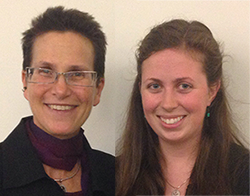Destabilizing Bodies, Destabilizing Disciplines: Practicing Liminality in Music Therapy
DOI:
https://doi.org/10.15845/voices.v14i3.797Palabras clave:
disability studies, music therapy, passing, privilege, abelismResumen
Our project began with a consideration of how disability studies might enrich the practice of music therapy. Originally, we were interested in how a greater awareness of disability issues might help music therapists, especially because of the often medicalized (and arguably pathologized) implications of the terms (“health” and “help”) which define their field and which frame the therapist/client relationship. On these grounds, we argued that greater awareness of the cultural context for such implications might aid the therapist. At the outset, it seemed straightforward enough. But our own unstable embodiments kept disrupting our conversations. The corporeal intransigencies of our bodies as we dealt with the symptoms of Crohn’s disease, autism and multiple sclerosis moved us beyond a critique of disciplinary purity which constructs each field as distinct to an analysis of privilege, power and passing that extends to multiple disciplines and pedagogical practices.
In our paper, we raise questions about how the illusion of (st)able bodies can reinforce hierarchies (between therapist/client, teacher/student, helper/helped, ablebodied/disabled), especially when the person “in charge” does not have to disclose or discuss the instability of her own body. Upon that privilege rests an array of power dynamics, and we believe that a purposeful contemplation of our own embodiment has to be more central to praxis, whether as therapists, scholars, teachers or professionals. To do this, we must be aware not only of others’ but also of our own relationship to disability -- socially, culturally, and as a marker of identity and potential (in)access to power.

Descargas
Publicado
Cómo citar
Número
Sección
Licencia
Articles published prior to 2019 are subject to the following license, see: https://voices.no/index.php/voices/copyright

